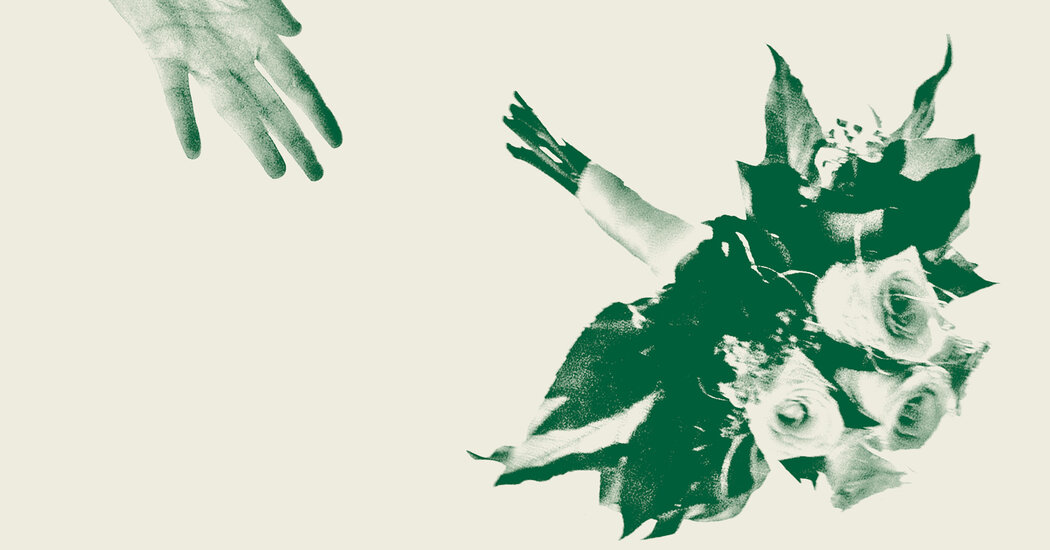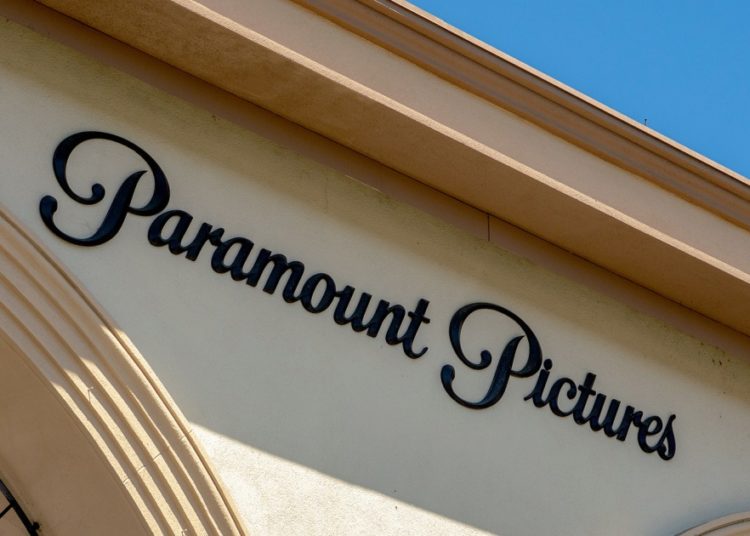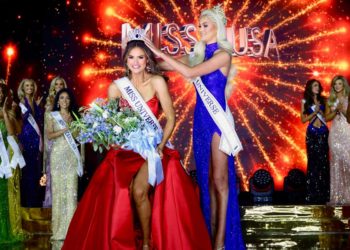What’s the problem with marriage? That depends on whom you ask. The Times Opinion editor Meher Ahmad is joined by the Opinion writer Jessica Grose and the author Glynnis MacNicol to discuss the current shift away from marriage and romantic relationships, and what these cultural changes mean for our society at large.
Below is a transcript of an episode of “The Opinions.” We recommend listening to it in its original form for the full effect. You can do so using the player above or on the NYTimes app, Apple, Spotify, Amazon Music, YouTube, iHeartRadio or wherever you get your podcasts.
The transcript has been lightly edited for length and clarity.
Meher Ahmad: I’m Meher Ahmad. I’m an editor for the New York Times Opinion section. And recently I’ve been reading and hearing a lot about the malaise that women are feeling about romantic relationships, particularly the heterosexual kind. In articles and podcasts there’s been a slew of deep dives into the emotional labor of dating men, the problem with marriage, and how dating apps are leaving women feeling hollow.
People have been complaining about the travails of coupling for generations, but it seems like something new is afoot. So what’s with this onslaught of relationship discontent in the cultural zeitgeist?
I’m joined by my colleague Jessica Grose, who writes about family, culture and relationships, among other things. And writer Glynnis MacNicol, who has written two memoirs about being single, childless and continuing to pursue happiness and a meaningful life into her 40s and 50s.
Jess and Glynnis, thank you for being here.
Jessica Grose: Thanks so much for having us.
Glynnis MacNicol: Thank you.
Ahmad: So I wanted to start by asking: Is there a sense of doom around relationships in our culture right now? Jess, if you want to start.
Grose: So I think a number of things are going on at once. If you look at the polling of high schoolers, roughly the same percentage are saying they definitely don’t want to get married as did decades ago.
So it’s about 5 percent saying this is definitely not for me. I think the No. 1 place we are seeing the discontent is online dating. I think people find it dehumanizing, soulless and unfun. I say this from zero experience.
I have not been on a date since 2005, but that is my sense. A lot of it is specific unhappiness with the online gamification of relationships. This is also the first generation — for millennials, younger members of Gen X, and Gen Z — where marriage is not compulsory for some people.
You don’t have to get married to have the idea that you will have a fulfilling life. And once it’s a choice, there’s a lot more negotiation. We’re also in a moment where more and more women are financially self-sufficient. So in terms of coupling just for financial reasons, which, if you know the history of marriage, you know that marriage used to be an exclusively financial arrangement. But in the, let’s say, 200-year history of love marriage, the idea that women could be self-supporting and self-sustaining — that’s like the past 20 years that there’s a majority of women who could support themselves into adult life.
That’s a renegotiation of traditional gender roles. And I think the complicated feelings around the renegotiation of those traditional gender roles is ongoing.
Ahmad: Glynnis, what’s your take? Where do you think this sense of doom is coming from?
MacNicol: Well, I’m on the flip side of Jess. I’m in my early 50s and I have been on a date in recent times [laughs]. I think the doom is coming primarily from women in their 20s and early 30s who would historically be looking to marry or to have children.
And the exhaustion and the sense of pessimism is coming from not seeing a path forward to those things in the structures that have been presented as the traditional ways to approach both. And I don’t fault them for that. I think with online dating — even in my experience of it — the gamification leaves you with this sense of, you know, I don’t like this one; I’ll move on to the next one. There’s no commitment factor because it doesn’t benefit these apps. I would also say in the bigger picture, yes, the financial expectations that used to be the basis for partnership have diminished, but the cultural expectations have, too.
So the more that women are able to tell their own stories or create their own narratives, it diminishes marriage as the goal, essentially, and allows women to explore other avenues that are as satisfying or more satisfying or lead to a happier, more fulfilled life. And oftentimes that is outside of marriage.
Previously, there was no comparison. The only avenue to happiness and satisfaction was through marriage and motherhood. Anyone outside of that was the lonely spinster aunt in the attic. And now we have a lot of examples of what it looks like to be leading a life outside of that, and the ways it can be fulfilling and enjoyable and adventurous.
So in this conversation of rethinking what this looks like, you’re like: Well, actually, the alternative doesn’t look too terrible. And then you add to that, in a country that does not provide child care or much support for women who do want to be parents, you hear a lot of stories about that path in life and how punishing it is. And in comparison to the alternative, when the alternative for the first time in history is starting to look far more enjoyable, I think contributes to this sense of, well, what is the point of this?
Ahmad: Rates of marriage have been steadily falling over a century, but they’ve plateaued in the last few years. There was a recent Pew Research Center survey in which 48 percent of women said that being married was not too or at all important for a fulfilling life, compared to 39 percent of men.
What do you see as the reason behind this? Is it social media? Is it apps? Is it the state of the world? Both of you circled around this question of alternatives to this one form of partnership, but I am curious whether you see the plateau as having some kind of factor into these larger societal trends, too.
Grose: Marriage is considered by a lot of people to be a capstone. This is how the sociologists refer to it. People really think that they need to have their ducks completely in a row financially and emotionally before they are ready to get married, and that didn’t used to be the case.
People used to get married a lot younger. The biggest thing I would say is that it is taking young people much, much longer to feel that they are in a settled enough place to get married.
As Glynnis correctly points out, there is a vision of a fulfilling alternative. I always pay a lot of attention to the way these questions are asked. I would probably say being married is not too important for a fulfilling life because I believe that other people can definitely have a fulfilling life without being married, while also knowing that my being married in what I think of as a good marriage is one of the most important aspects of my life.
Ahmad: Yeah, that makes sense.
MacNicol: It’s hard to separate Covid from this conversation. During Covid and coming out of Covid, we heard so loudly and understandably from so many women who felt that they were shouldering all of the household responsibilities and all of the child care responsibilities in a very intense and difficult time.
It’s hard to say how that narrative filtered down to younger people thinking about whether or not they wanted to get married. And people change their minds. My niece told me when she was 6 she idolized me, and she was like: I don’t want to get married. I want to live in New York by myself and be a colorer.
[Ahmad and Grose laugh.]
And I thought, wonderful! You have another example. And now that she’s a teenager, it’s like: When I have kids, when I’m married. So these ideals shift as you age, and everyone’s experience is so individual.
We have the statistics that are so popular now that say marriage benefits men and it doesn’t benefit women. But at the same time, you don’t know who’s shouldering the intimacy or the emotional support in the house. You can’t see inside other people’s marriages.
I think the bigger question that applies to this is how are we, through laws and nationwide structure, supporting the institution of marriage so it can be as fair and as egalitarian as possible? And that often comes down to child care and the penalties women experience once they do start having children.
Ahmad: Glynnis, I sense you’re interested broadly in how these changes are happening in the culture. Are these changes in the sense of people rejecting marriage as an institution, heterosexual partnership as an institution, are they necessarily a bad thing?
You’ve written a lot about what you’re describing: building your life around embracing singlehood outside the confines of this kind of specific institution. You’ve also written pieces in The Times about this. What do you make of the degree to which the culture is shifting?
Do you think that more and more women are starting to embrace this idea? You’ve mentioned that these narratives are just starting to emerge. Does it feel more viable to more women at this point?
MacNicol: I can only tell you based on the women I hear from. When narratives do pop up, there’s an enormous relief in seeing your life reflected in a cultural narrative. To not have that feels extremely isolating and punishing. That also filters down to how we regulate institutions.
Just as basic as traveling, right? You are financially punished for traveling by yourself. I think this is why Tracee Ellis Ross’s solo show has taken off the way it has. It’s just nice to see some version of your life out there. But the reality is that to be financially independent is very, very difficult.
We’re not living in a world in which the structures support that in any way. There are amazing things about living like this and there are very difficult things about living like this, which is exactly the same truth about a good marriage, right? I can love my life, but that doesn’t suggest that there aren’t very hard things, and some of those hard things are not tied to the ways in which I am required to live in America. But that’s very true of marriage at the same time.
Ahmad: Let’s talk about the people who are still in pursuit of this type of partnership — not just marriage, but heterosexual partnership. One of the things that some of these pieces have touched on is the idea that these dating apps as a means to finding a partner have made it so difficult. Glynnis, you touched on this kind of feeling of endless options and continuing on. I’m curious if these apps have made it so women, men, anyone using them feels as if they have this ideal in their head of a perfect partner. You hear of red flags a lot. If this person has this red flag, then I’m not going to go on a second date, you know? But in a city like New York or other major American cities, it can kind of just feel like the deck is endless.
You can keep swiping and going through as many of these profiles as you want until you find the perfect person. Is that adding to a level of dissatisfaction, too?
MacNicol: I think it’s hard to separate the experience of dissatisfaction of a dating app and the swiping from a similar dissatisfaction of all of us living on our screens or on Instagram. This isolation of a primarily digital existence in our social lives. Plenty has been written about the loneliness of Gen Z or the way that people are not socializing, the way that they’re not having as much sex, the drinking culture is gone — which may or may not be a bad thing.
I think it’s very difficult. Part of this exhaustion is that you’re only responding to a screen version of someone. You’re not having a real-life experience. It’s like responding to a person in a magazine. There’s no reality to it. And that in and of itself, regardless of whether you’re searching for romance or partnership or whatever, is exhausting.
I’m exhausted looking at my friends on Instagram sometimes. It can make me feel terrible. So these things are all connected. And if you’re a person in pursuit of partnership, particularly if you’re a person who wants to be married and have children, which is a completely valid goal …
I think often of how exhausted I get, and I’m not in this for the long term. It’s this sense of disposability. There’s not even like the basic level of the way you meet someone and do you like how they smell?
Do you like their expressions? So much of what any relationship is built on is in-person contact. These apps remove that to a degree that just makes an already … I think “precarious” is not the right word. A situation with some risk attached to it in terms of emotions or expectations ——
Grose: Vulnerable.
MacNicol: Yes, vulnerable. Then add to that a generation of kids — and Jess, you’ve written about this — who are so much on their screens or they’re not leaving the house or this is how they’re interacting with the world. And how do you have any relationship when it’s only screen-based?
Ahmad: Jess, what about you? Would your husband pass a red flag test if you met him on an app today?
Grose: Today, yes. When we started dating in our early 20s, we would have failed every internet red flag test. He lived with five other guys in a concrete room with no windows that we referred to as the “dum-dum den.”
Ahmad: Red flag. Major red flag.
Grose: [Laughs.] And I had my own slate of early 20-something issues. So if anyone under the age of 30 is listening to this, I would say people do grow up. It does happen. I think there’s this notion that you don’t grow and change. Everyone is just themselves. And that’s not true. Thank God I’m not the same person that I was 20 years ago when we met.
MacNicol: I think the hope is you grow and change in the same direction together. As you’re saying that I’m thinking, as we push marriage later and later, you establish yourself as an individual with your own likes and dislikes about how you live, and it becomes more difficult to give those things up and align yourself with someone. Whereas when I was 25 — the stuff I put up with when I was 25 — I didn’t know any different. You just have a much higher tolerance for the way other people behave because you have not established yourself fully yet.
Ahmad: What I’m hearing is that you’re both not seeing a wholesale rejection of partnership. Neither are you seeing a full embrace of the alternatives as the next step for women as they progress in society or feminism, whatever you want to call it. But we are now in this era where partnership is not the default. And if it’s not the default, there’s this wellspring of other options and what those other options look like, whether it’s financially feasible or whether it feels good is still being muddled out.
That’s what I hear from women my age and older who are navigating life outside of a heterosexual partnership. They wonder: Is this better than what my life was in a marriage? Maybe it is in a lot of ways. I don’t know if I should continue going this way. What’s my life going to look like when I’m 80?
These are the kind of questions that start to spring up when we’re essentially charting a new path or questioning whether this one structure is the structure for us to pursue.
Grose: I feel like in every major life choice it’s about trade-offs. It’s so individual and it is so based on what your desires are and how well you know yourself. There are so many discussions on having kids or not having kids. I just always knew I wanted them.
This was a fairly uncomplicated thing for me, and I completely understand that is not the case for a lot of people.
MacNicol: I’d also say we’ve only had one way for women to live for most of history. So a small portion of women are now very recently able to live in a different way, in a way that’s somewhat satisfying, and it’s having an outsize effect on our understanding of what’s going on because it’s that new, and that’s shocking.
I think that’s useful to keep in mind: how brand-new this is. Just the idea that there’s a slice of the population — even in America — who is able to support themselves outside of marriage in a way that they enjoy or find satisfying or is in some way aligned with how they want to live is striking us as enormous just because it hasn’t really existed in any way before. That’s something to keep in mind as we continue to see these panicked articles about people not getting married or not having kids or whatever it is.
Ahmad: And part of it also seems like the stigma of it all has been lifted a little bit more.
MacNicol: A little bit, yeah.
Ahmad: So if the panic is one side of the coin, I think the increase of people writing these pieces is also indicative of the fact that more and more people are starting to do that.
Well, thank you both so much. This has been a wonderful conversation, and I really appreciate you both taking the time to chat with me.
MacNicol: Thank you.
Grose: Thank you.
Thoughts? Email us at [email protected].
This episode of “The Opinions” was produced by Vishakha Darbha. It was edited by Alison Bruzek and Kaari Pitkin. Mixing by Carole Sabouraud. Original music by Sonia Herrero and Carole Sabouraud. Fact-checking by Mary Marge Locker. Audience strategy by Shannon Busta and Kristina Samulewski. The director of Opinion Audio is Annie-Rose Strasser.
The Times is committed to publishing a diversity of letters to the editor. We’d like to hear what you think about this or any of our articles. Here are some tips. And here’s our email: [email protected].
Follow The New York Times Opinion section on Facebook, Instagram, TikTok, Bluesky, WhatsApp and Threads.
Jessica Grose is an Opinion writer for The Times, covering family, religion, education, culture and the way we live now.
The post Why Is Marriage Less Attractive Than Ever? appeared first on New York Times.




